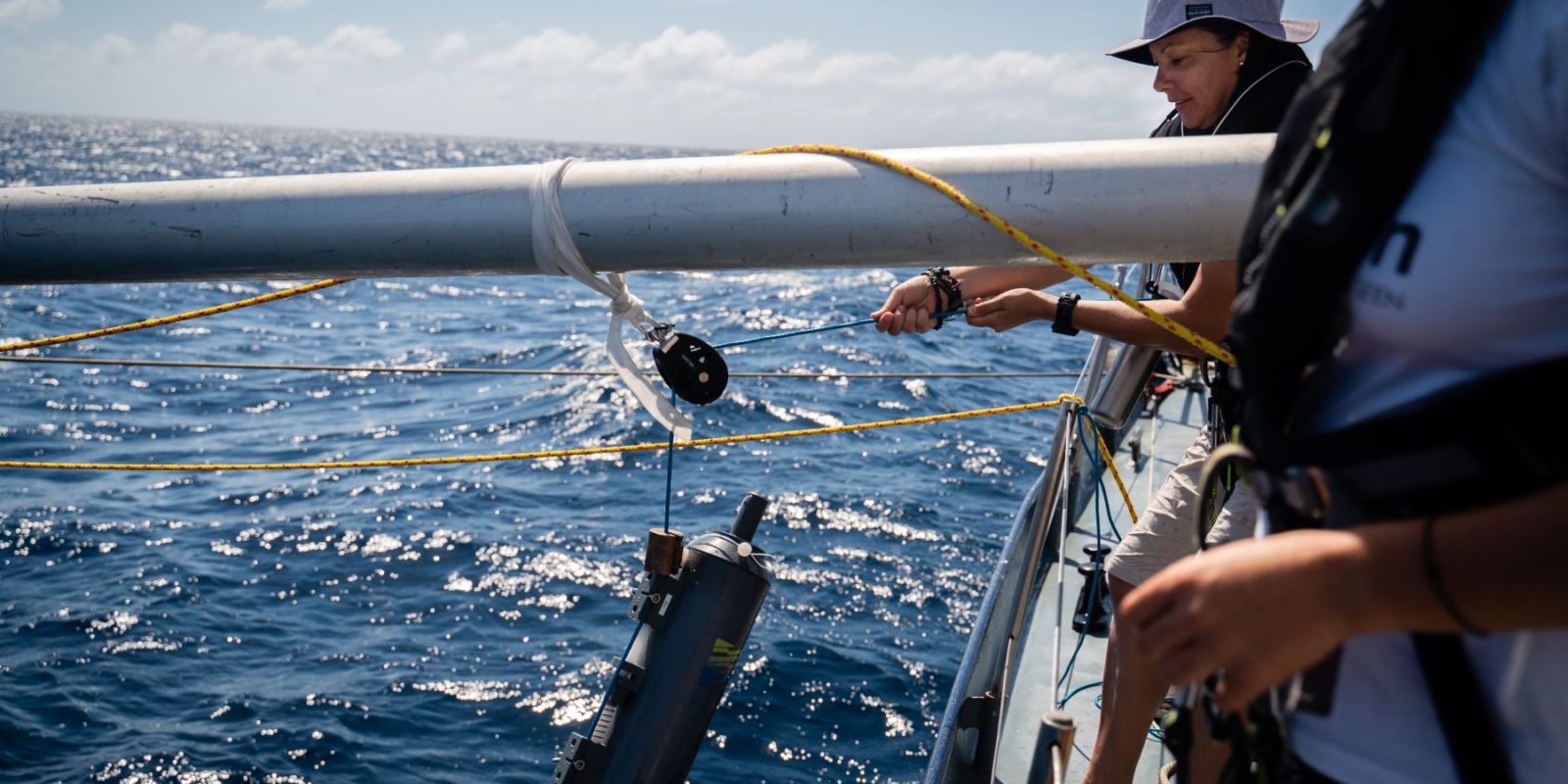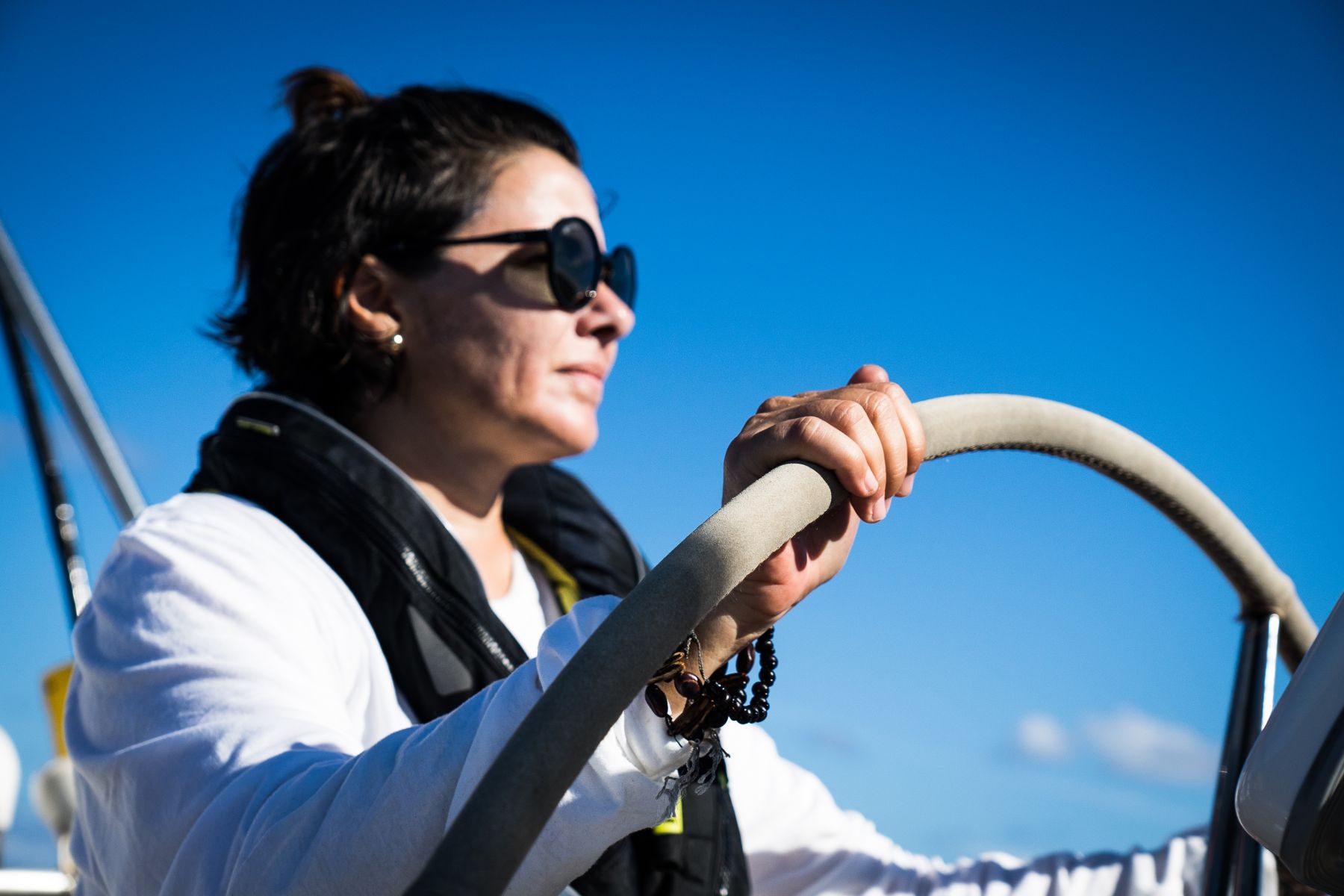Passionate about responsible business operations and the circular economy, and entrepreneur at heart, Juliet Carvalhal is a change-maker looking to reduce our plastic dependencies. Juliet joined us on Leg 4 of eXXpedition’s Round The World voyage.
Born in Canada and raised in Aruba, over the last 8 years she has successfully managed to decrease her island’s plastic footprint. She established the Impact Blue Foundation, with private sector partners, to collaboratively research and create inclusive solutions to phase out our plastic reliance.
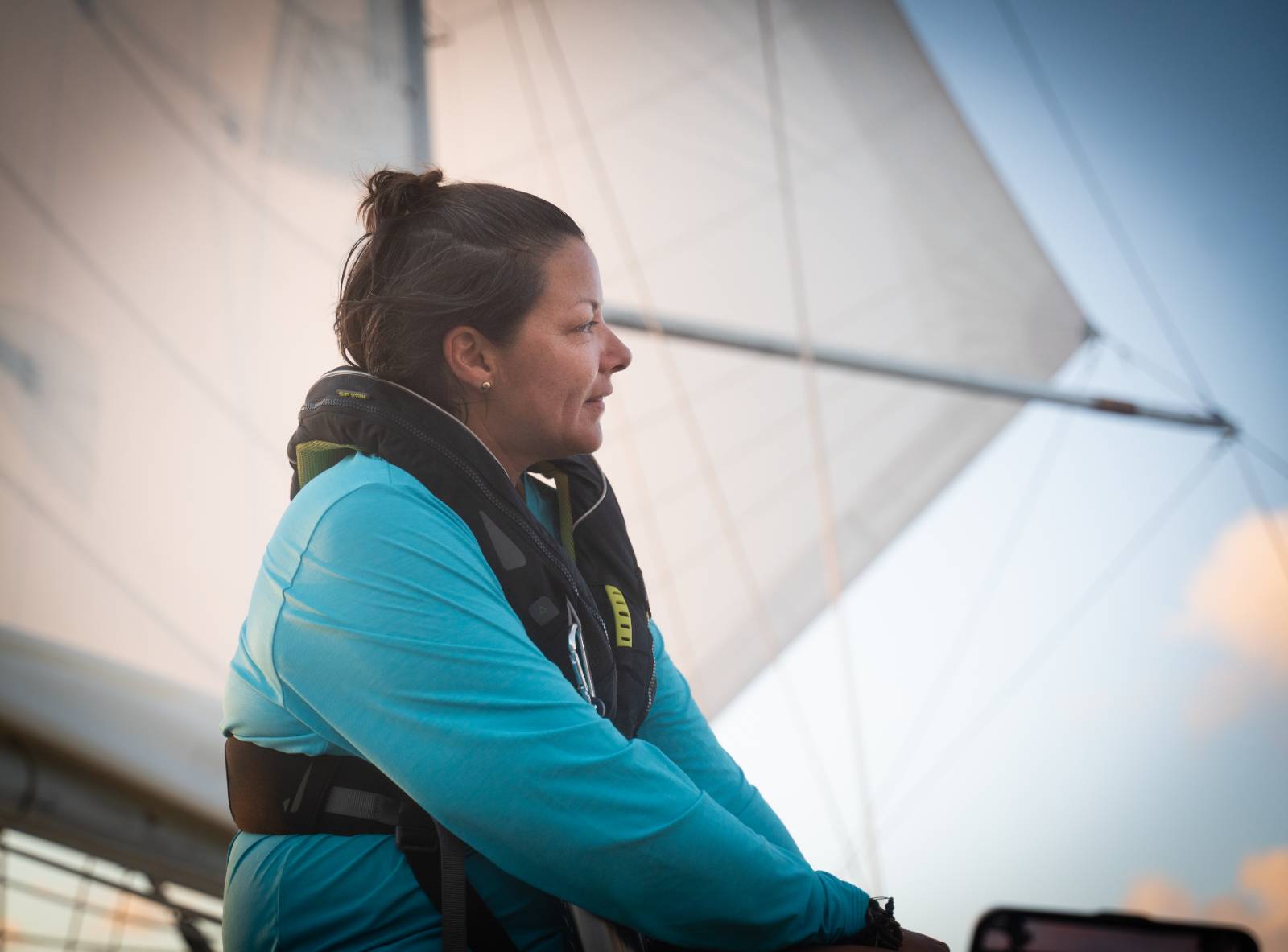
We caught up with Juliet to find out her developments at Impact Blue since returning from her Antigua-Aruba voyage and discuss the role her superpower has played in maximising her impact through the platform of an NGO. Her story showcases the bigger voice island nations deserve in discussions surrounding plastic pollution.
When did you realise that plastic pollution was something that you really wanted to tackle?
It was a very definitive moment for me. There was a night in December 2013 when I was watching a news item on the local TV station. They were doing a story on a mangrove cleanup in an area I had spent a lot of time water skiing. It was just completely inundated in primarily plastic bags. I knew I had to do something about it so I gathered a group of people that were interested in helping. The first thing we did was a site inspection of that same mangrove forest. Walking through the site we were up to our knees in plastic bags. That was the moment I said to myself that I needed to do something about this.
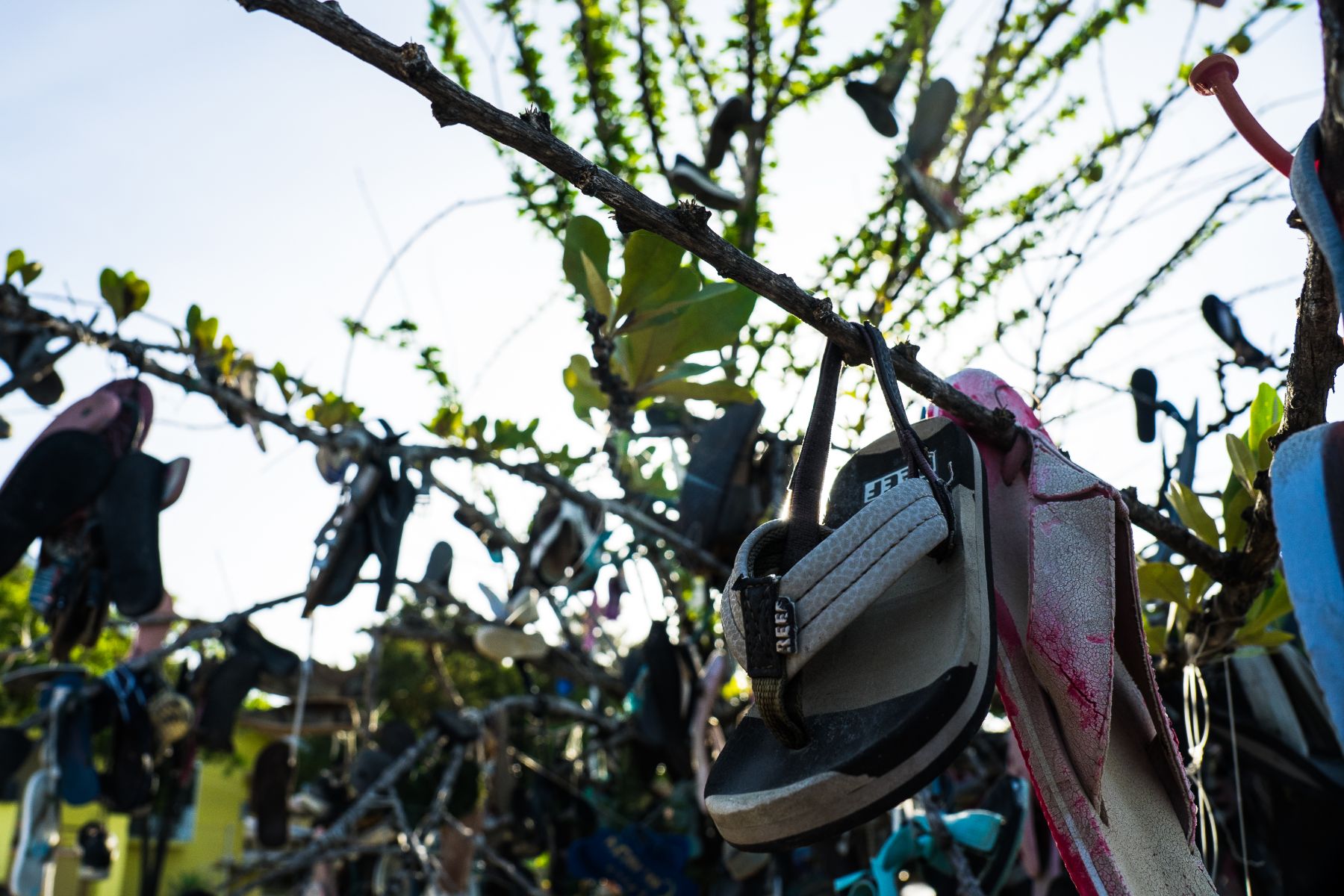
Was anyone else looking to do something about this too?
I think people had gotten so used to just seeing plastic that it became really normalised. People had become numb to it. I remember taking a few teenage girls on a mangrove cleanup in the area close to our island’s main landfill site. To my surprise they were totally unmoved by the plastic engulfing the site. It shocked me how for them, that was normal. But that is just what they had grown up with. They knew no different. But that’s not the Aruba I knew growing up.
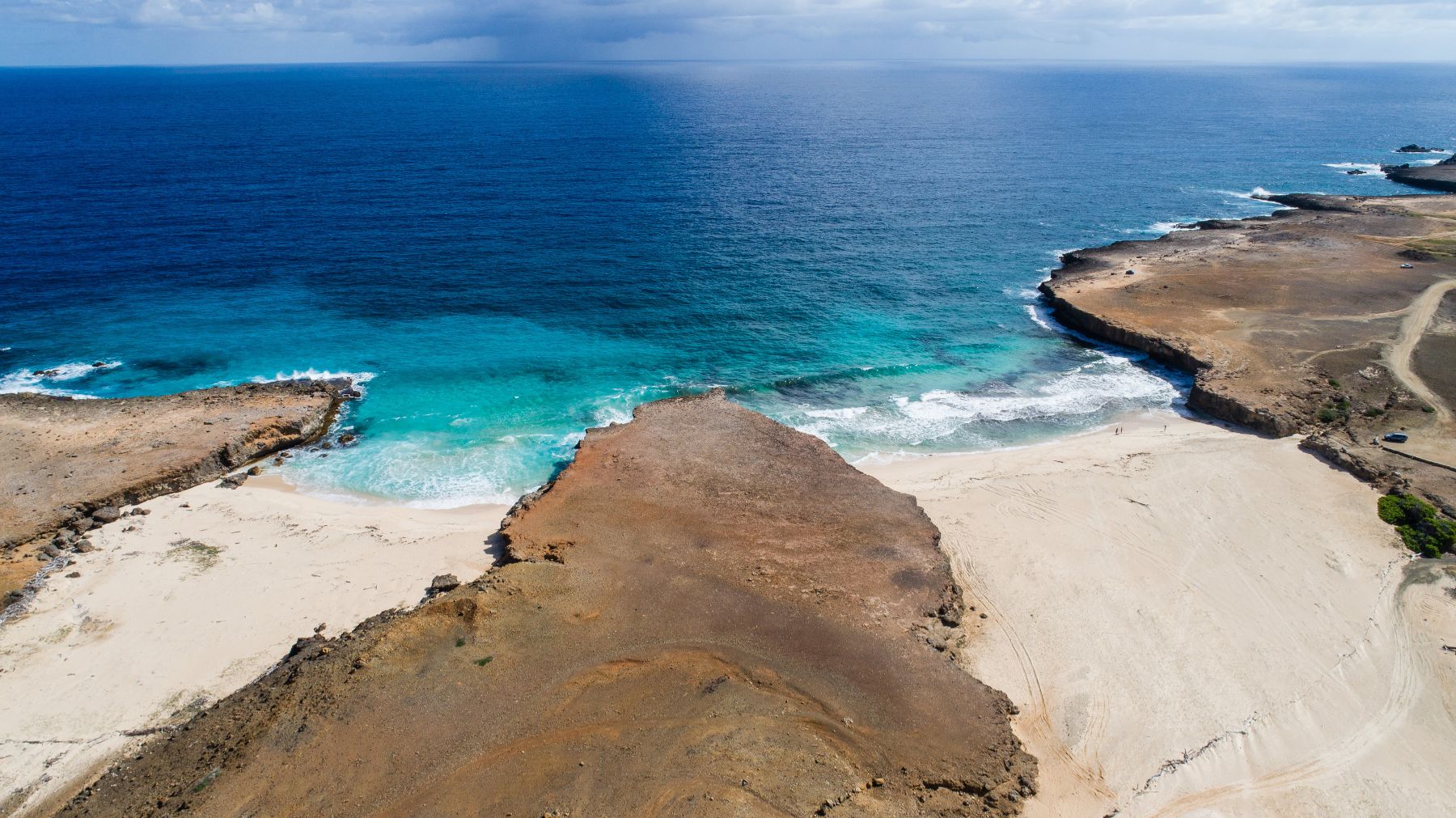
Why did you initially want to be involved with eXXpedition?
The more and more I learned about plastics the more I wanted to know. When I saw the opportunity to join a voyage with eXXpedition and realised they would be coming to Aruba I saw it as an opportunity to combine what I was already doing here, with my Foundation and plastic waste, with a different perspective. If I could combine the land based-science, which I had already studied, with the science in the surrounding oceans perhaps I could develop a more long-term project for tackling microplastics on Aruba. So I applied, and was lucky enough to secure a place aboard the boat.
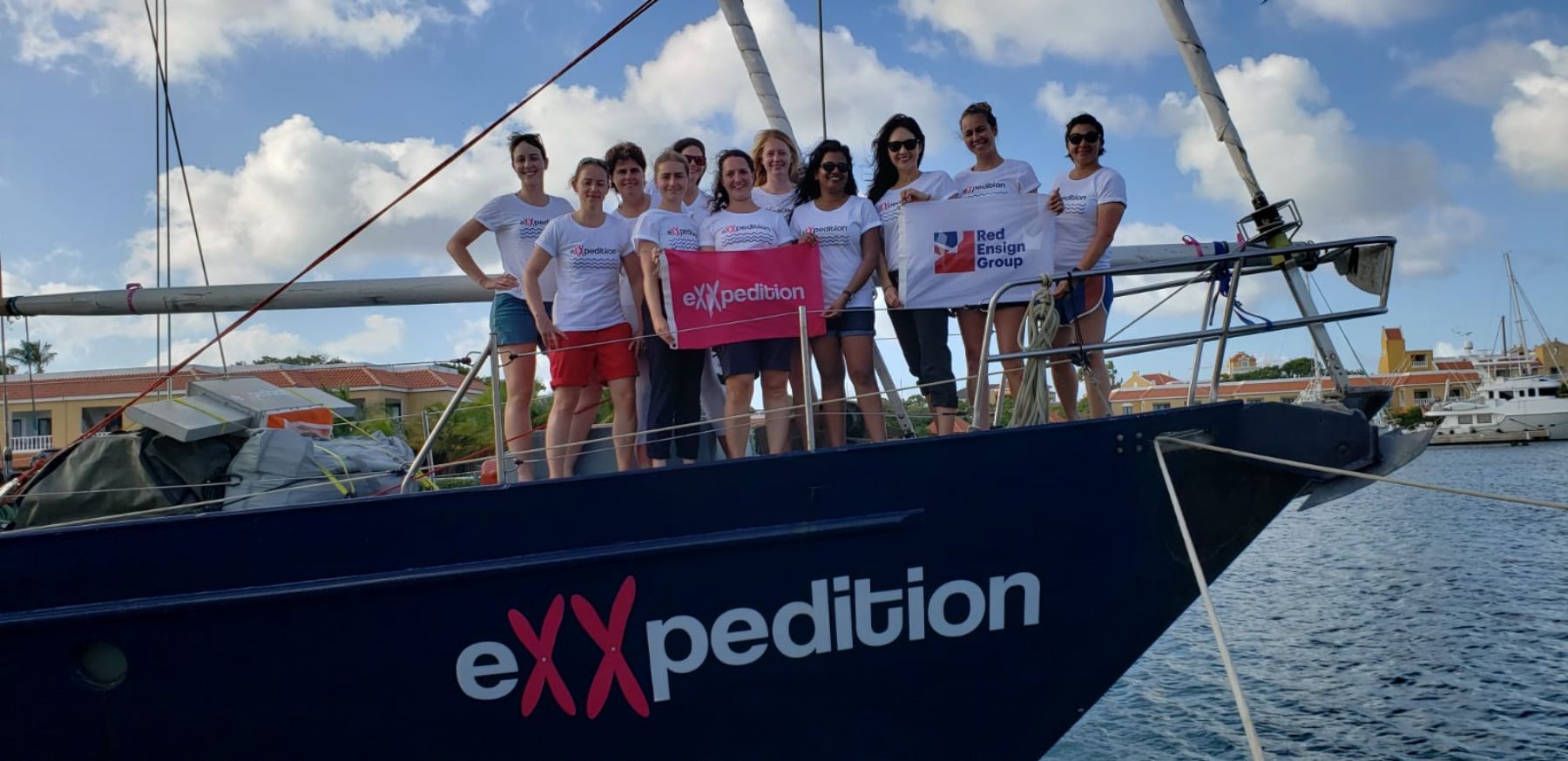
What was it that you found most striking to learn about?
In terms of the science, I think it was the realisation of the enormity of the problem. The realisation that our samples were just tiny slithers in the mass of an entire ocean. If we were finding that many microplastics in just one of these slithers, when I scaled that up to the mass of the entire ocean – I was able to really visualise the enormity of the crisis. And that was a huge eye opener. Just realising that enormity.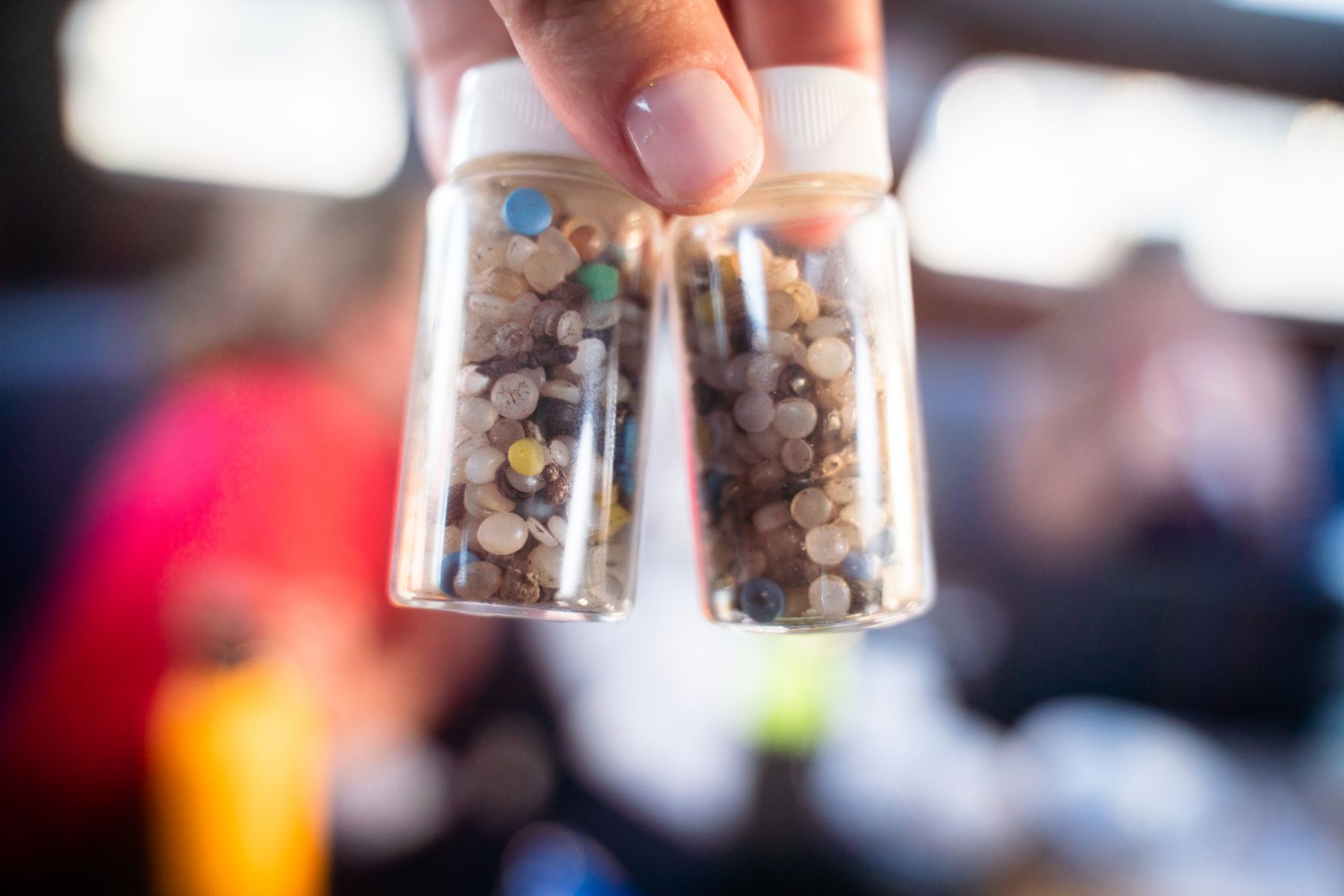
What is your memorable moment from your voyage?
It was our first night aboard the boat, and I was on the night watch. The ocean was as flat as a mirror and the night sky was filled with more stars than I had ever seen. So many of the girls spoke about how massive they found the ocean, and how small they felt in comparison. But for me, at that moment, the world felt small. The stars felt so close that I could just reach up and pick them right out of the sky. It was like being inside of a snow globe. Despite the overwhelming enormity of the science, in that moment the world felt small, and tackling the problem no longer felt so daunting, but somehow doable.
Can you describe eXXpedition in three words:
Female empowerment, inspiration, community
What’s your superpower and did the voyage confirm that for you?
So, the girls aboard the boat all said empathy. I knew that empathy was one of my strengths but I didn’t realise it was so obvious! When making successful policies, collaboration is important and by being empathetic I think collaboration is something that comes more easily to me. And collaboration is not just a matter of getting all the necessary stakeholders sitting around the same table. But, it’s about actively listening, and learning from each of them. It’s creating a level of trust and respect between stakeholders so that the collaboration is meaningful. Being an empathetic person definitely makes that easier.
Let’s talk about Impact Blue, the Foundation you established and where you now work full-time. What was your vision behind the Foundation, what were you hoping to achieve?
Impact Blue was born out of my vision to transition Aruba, the Dutch Caribbean, and even, the greater Caribbean away from single use plastics, towards a circular economy. Having created and co-developed the ban of all single use plastic bags on the island, effective since July 2017, I knew there was more I wanted to do. So on World Oceans Day in 2018, we launched Impact Blue.
Our foundation works with the private and public sector, whereby policy design and implementation is one of the tools applied to instil behaviours that will create the cultural shifts required for the circular economy transition. Our vision identifies three main activities. The first is to Learn – to start with the science and the data. The second is Doing – implementation and creating measurable impact. And the third is Sharing. Once we’ve shared and collaborated, we find ourselves back at the first activity – Learning. So the idea is that all three activities relate in one continuous loop.
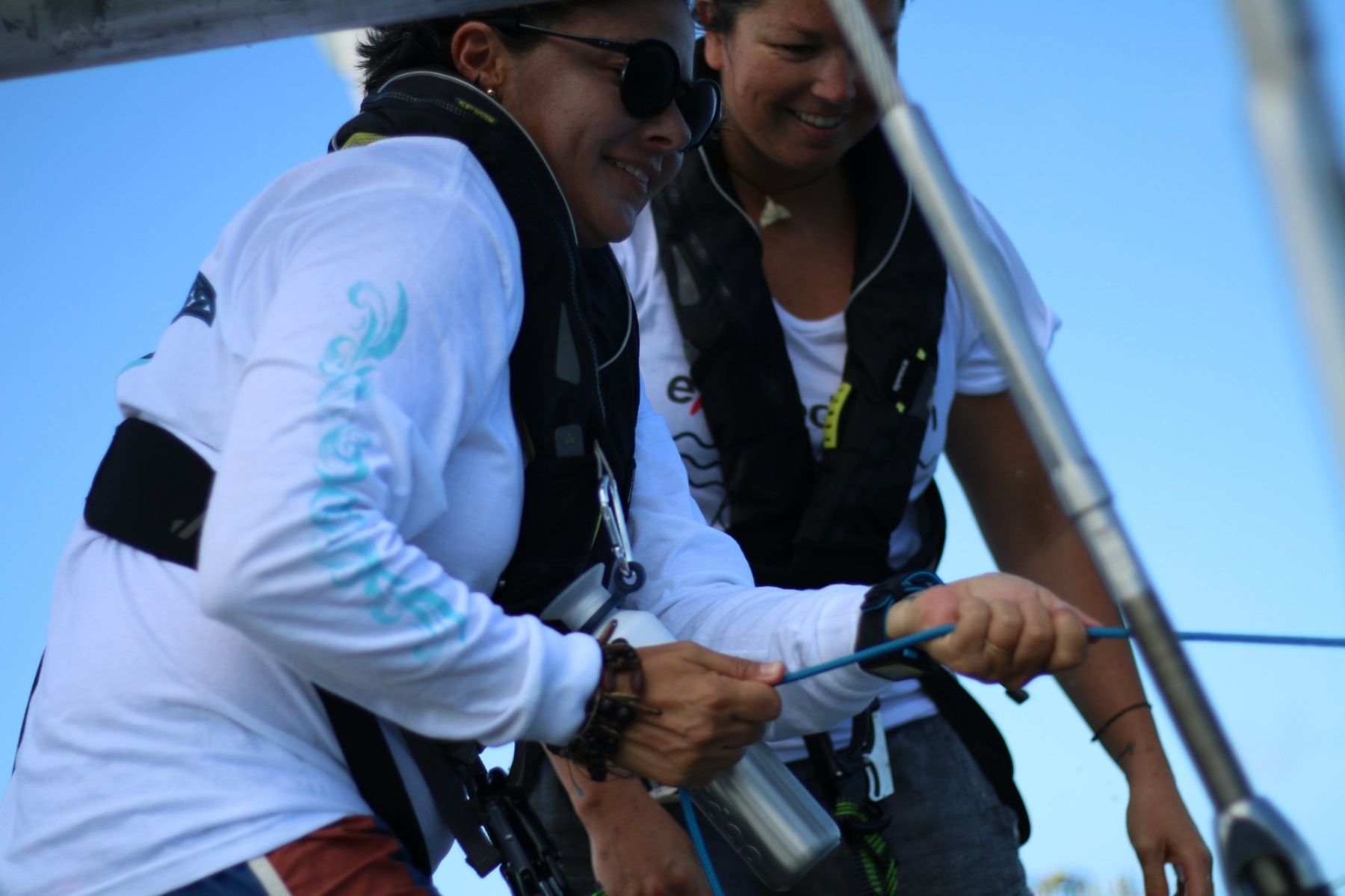
So why did you choose to focus on the private sector predominantly?
Rather than focusing on the greater population at large, I decided I wanted to tackle the issue from a corporate level. So I focus on using policy design and implementation, for example, to shift business values and corporate policy predominantly in the retail sector. With the right corporate policies in place, I believed employees would take those new values home and instil that same culture. So we would have this sort of ripple effect. We have 5000 businesses on the island, compared to 40,000 households. So, focusing on businesses, compared to a household which we have no influence on, felt more manageable. Focusing on the private sector was the strategic decision that made most sense to me.
Has the Foundation found a way to quantify the impact the Plastic Bag ban has had?
So our first task as a Foundation was exactly that. We launched a scientific evaluation study regarding the results of the plastic bag ban, 2 years on from its implementation.
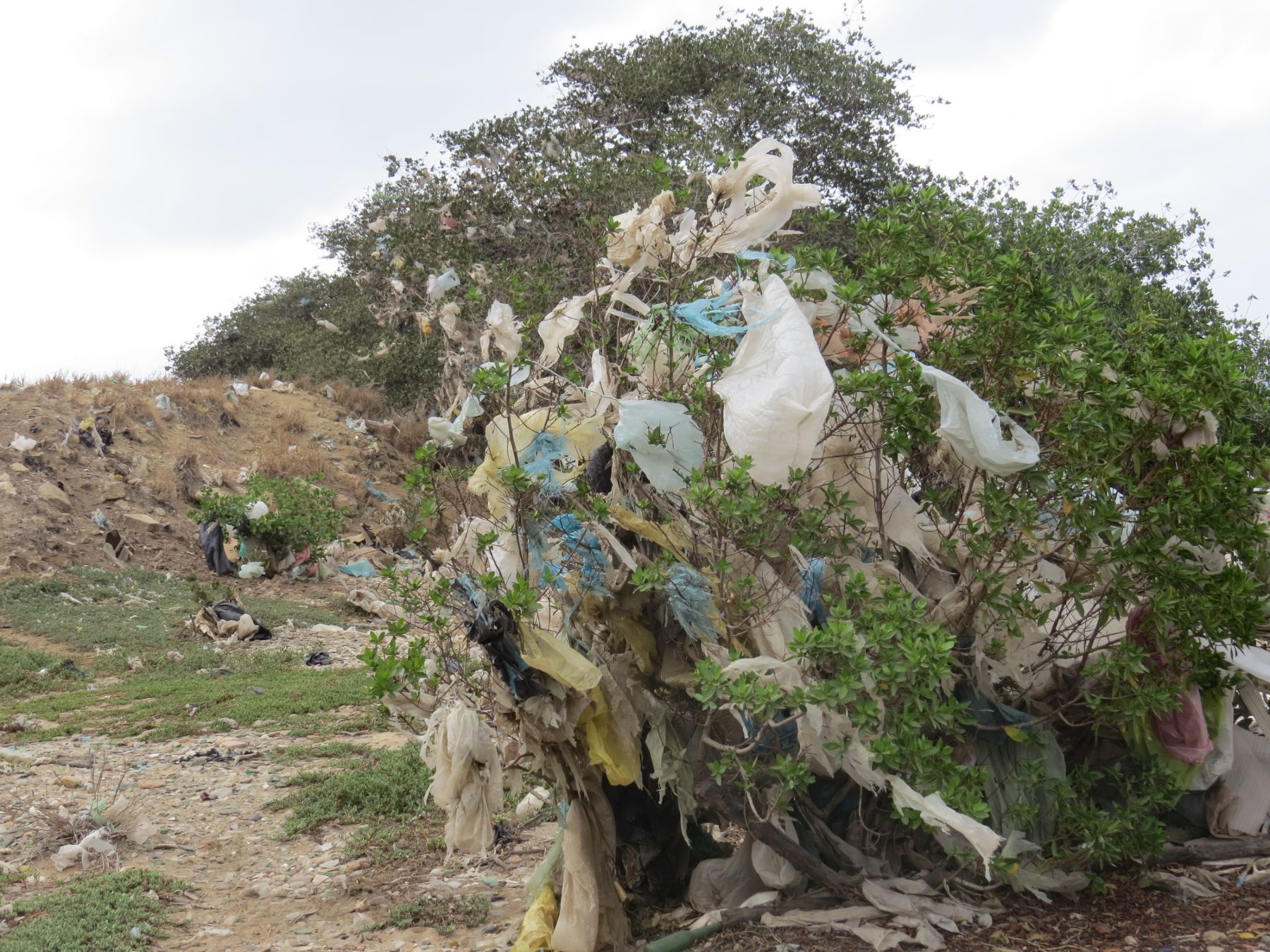
In terms of the adoption rate of the Law, after 2 years, 72% of retailers had stopped using single-use plastic bags and 19% were in transition. Across the Island we found that about 20% of retailers had switched to reusable bags. Over 40% had switched over to either recycled or non recycled paper bags. Then there were other retailers using things such as boxes instead of bags altogether.
Then there are 5-10% who have not yet adopted the law and they will always be more difficult to work with. This latter group falls in the category of needing a fine in order to nudge them toward adoption. However, we found that more often than not, retailers and distributors need the proper tools – information or training. The willingness to adopt is for the most part there, they are simply just unaware, or do not have the know-how to make the switch. So that’s why we value taking an educative soft approach before hard enforcement at the Foundation.
What are the opportunities of using a non-profit as your platform to implement change?
Something I have always tried to safeguard with the Foundation is maintaining our independence. It is our independence that lets us move between the private sector and the public sector. One issue that there has always been with government policies is the disconnect between the design and the practical implementation. I think this happens all over the world. So our independence allows us to bring more voices and more perspectives to the table during the design stage. We always consider who will be affected by the law and what tools they need in order to participate in a positive adoption of the law. Then we can say to the government “we need to tackle it like this” or “we need to bring in this group” etc. It’s those conversations and collaborations that inform proper design and implementation. Our independence affords that.
What achievements have you made with the Foundation since returning from the voyage?
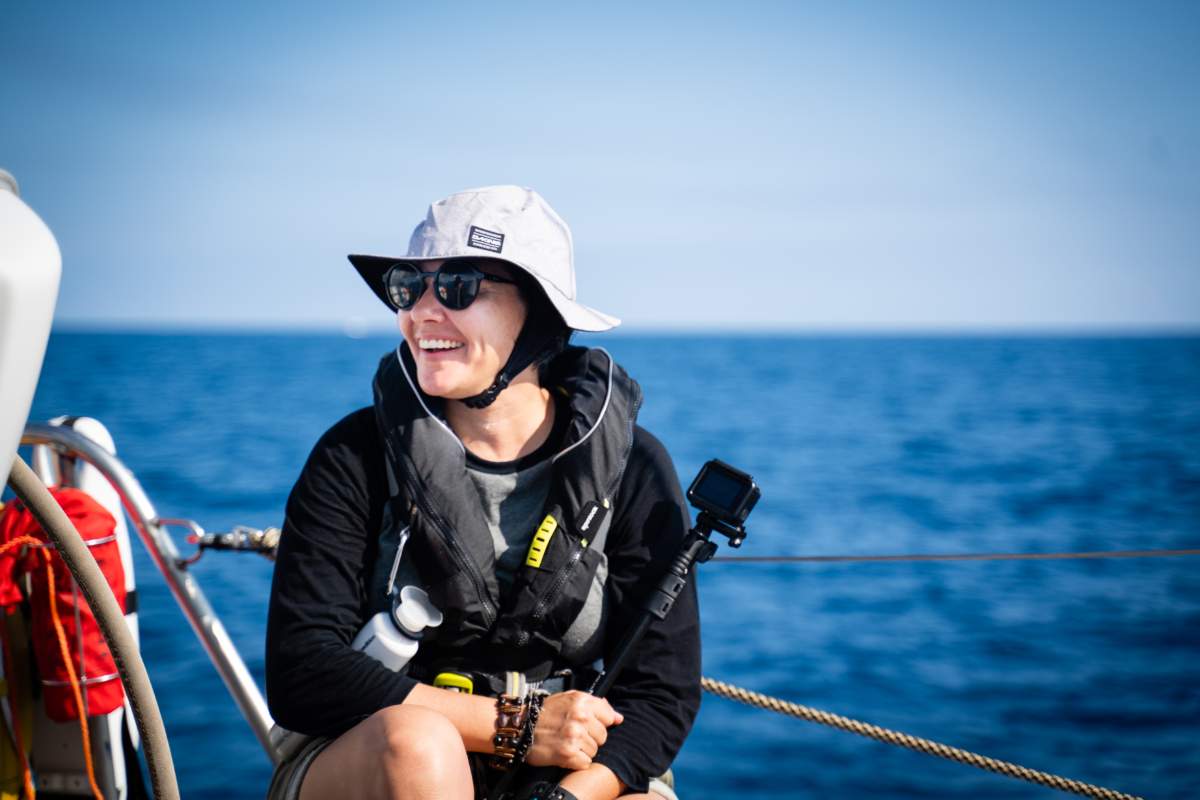
I have helped enact two additional laws – one in Aruba and one in Dutch Saint Martin. So the law implemented last July placed a ban on single-use plastic or bioplastic or styrofoam cutlery, cups, straws, stirrers, plates or bowls, toothpicks, bags used to pick/pack fruits & vegetables, to-go food containers; and lastly oxybenzone which is found in lots of sun creams but have a devastating effect on coral health. I have also completed an additional scientific study and am about to launch a third. So I’ve been very busy!
In terms of plastic bags, to date, we have prevented 99 million single-use plastic bags from entering our ocean. And that is just on one island. So imagine what we could do across the whole Caribbean.
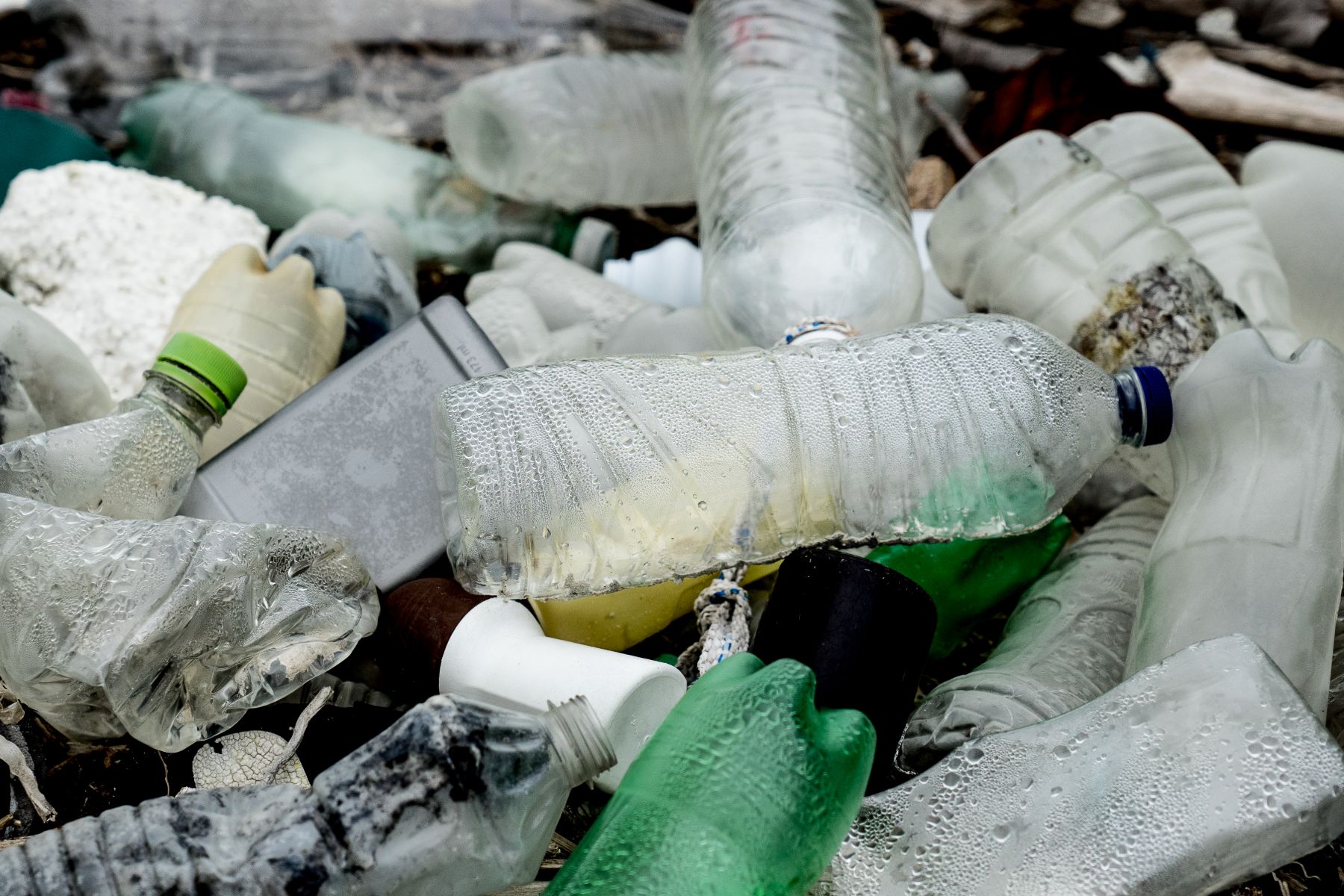
To date, we have prevented 99 million single-use plastic bags from entering our ocean.
What plastic item is next on your agenda to tackle?
Ideally we would bring all stakeholders to the table and determine the next steps together, based on proper research and viable opportunities. Considering reusable models or fortifying current take-back models are some other options to research as well.
If you were allowed to give one message to the world, what would it be?
“Many small people in many small places do many small things that can alter the face of the earth.” If we look at what every single person can do, suddenly the task seems slightly more doable. If I take myself, I did not have all the skills to go and design a law but I knew I had the skills to figure it out. That’s what is important.
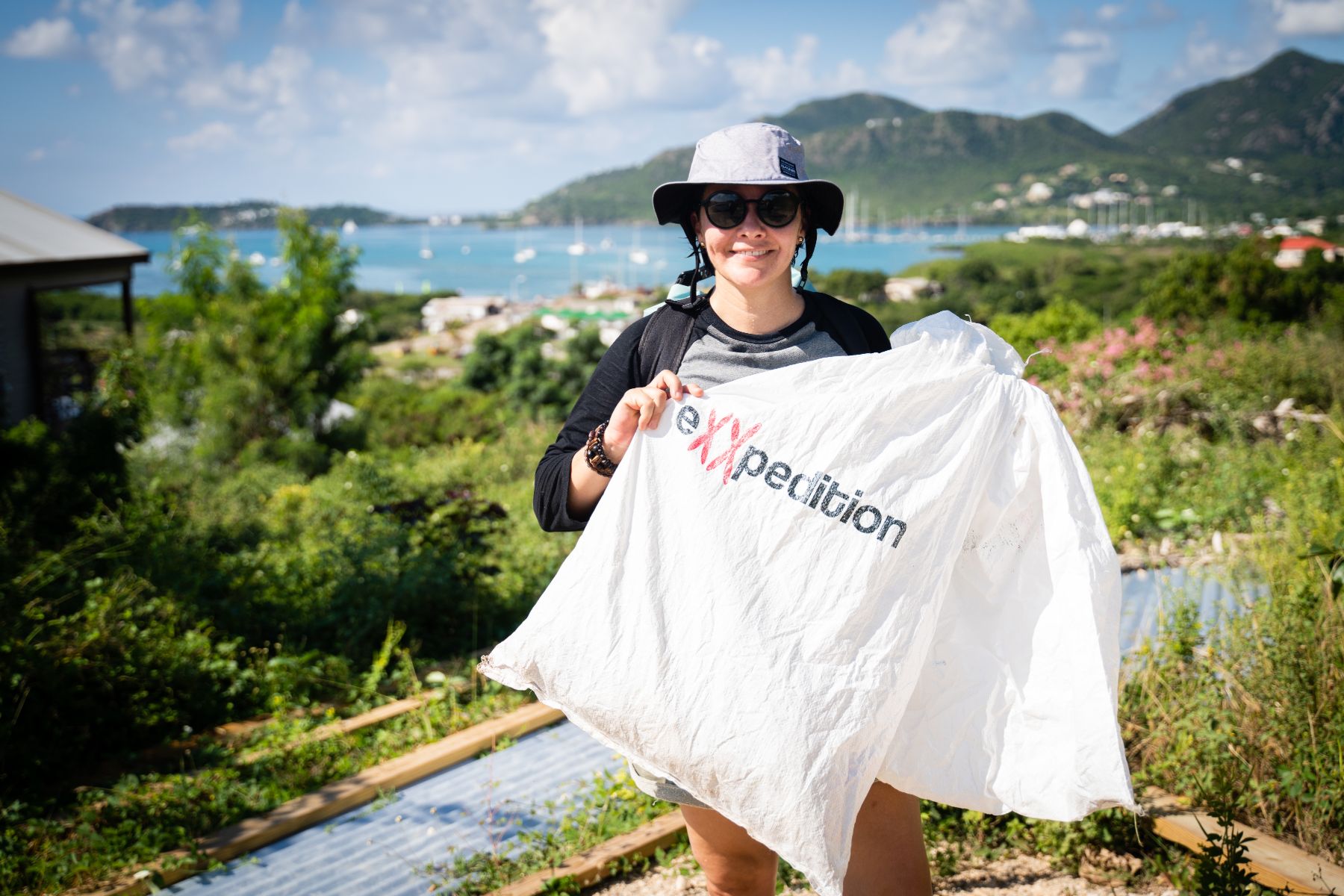
If we look at what every single person can do, suddenly the task seems slightly more doable.
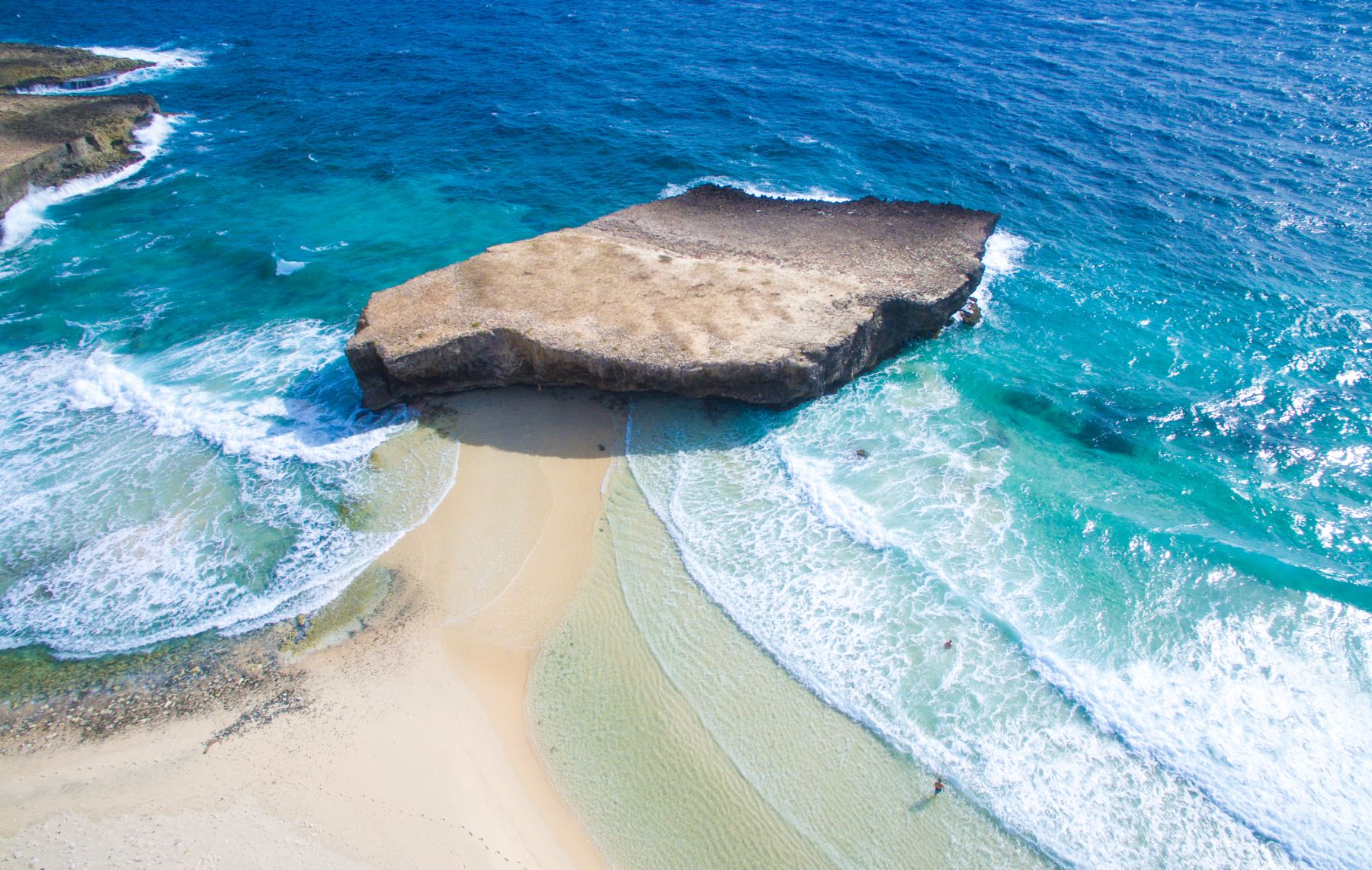
Photo credits
With thanks to: Aruba Tourism Authority, Jamie Colman, Emma Fegetter, and Sophie Dingwall.
